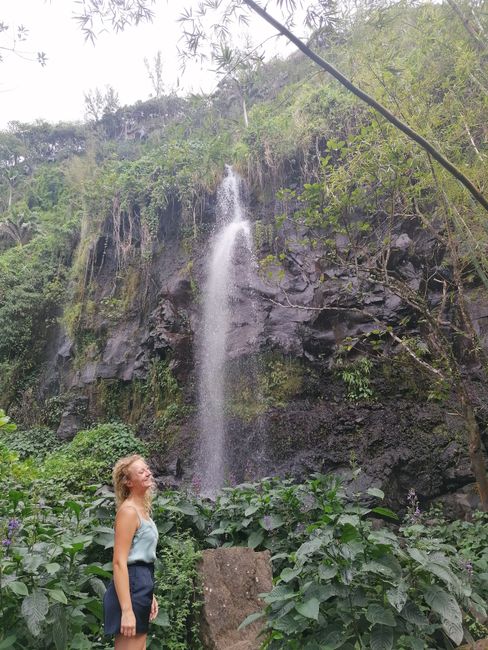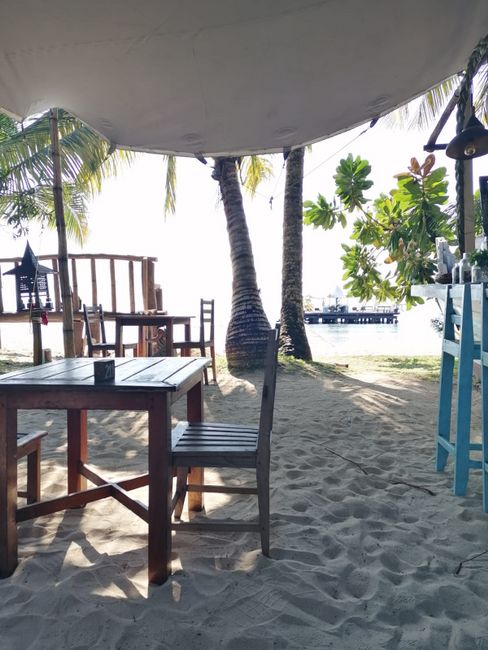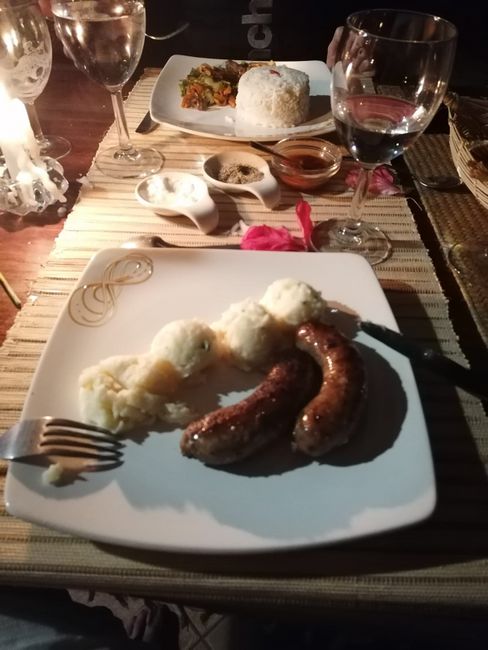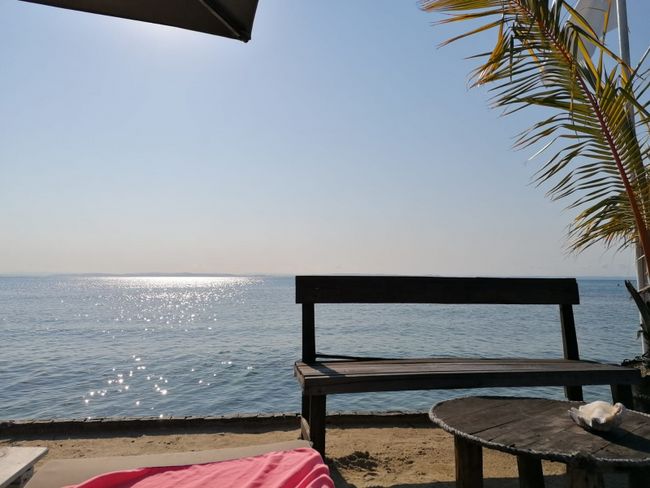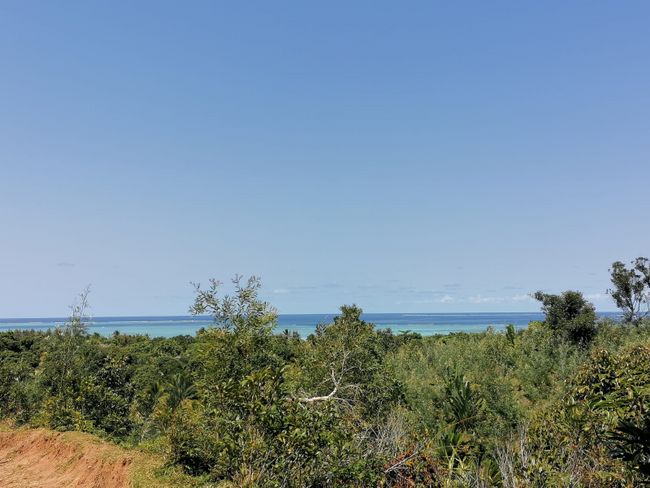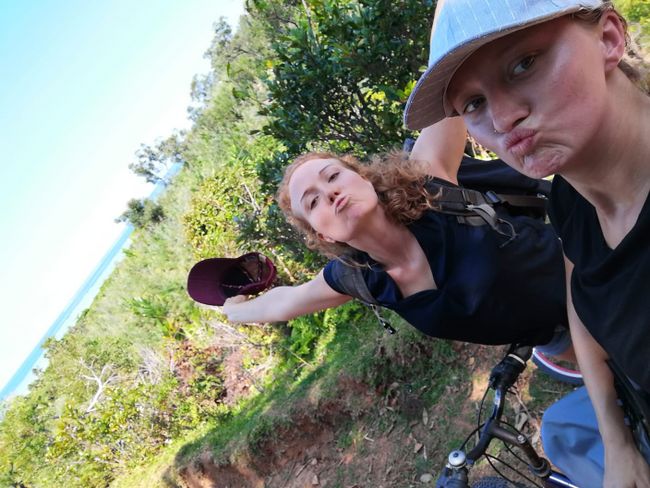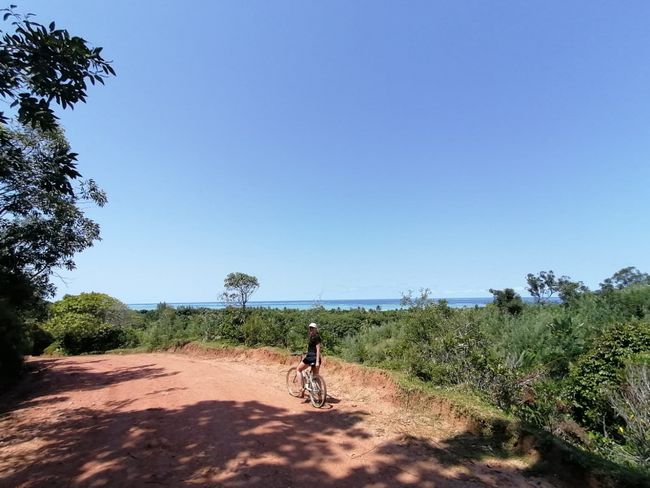Bicycle tour - 17.09.2019
Oñemoherakuãva: 30.09.2019
08:30 AM
Today we are going for a bicycle ride. But before we can dedicate ourselves to exploring the island, we take a tuktuk ride to the city to get some cash.
As a small apology, we buy two chocolate bars for Eric. For the Malagasy people, this is very expensive, as one bar costs 1.30 €.
Back at the hotel, we give the money, the chocolate bars, and a small letter with an apology to the reception. Then we hop on our bikes.
Well, the bikes have seen better days, Franzi's bike only has one working brake, and I'm struggling with changing gears. After a short time, my chain also gives up. After fixing it ourselves (woman power ;-)), our tour can continue.
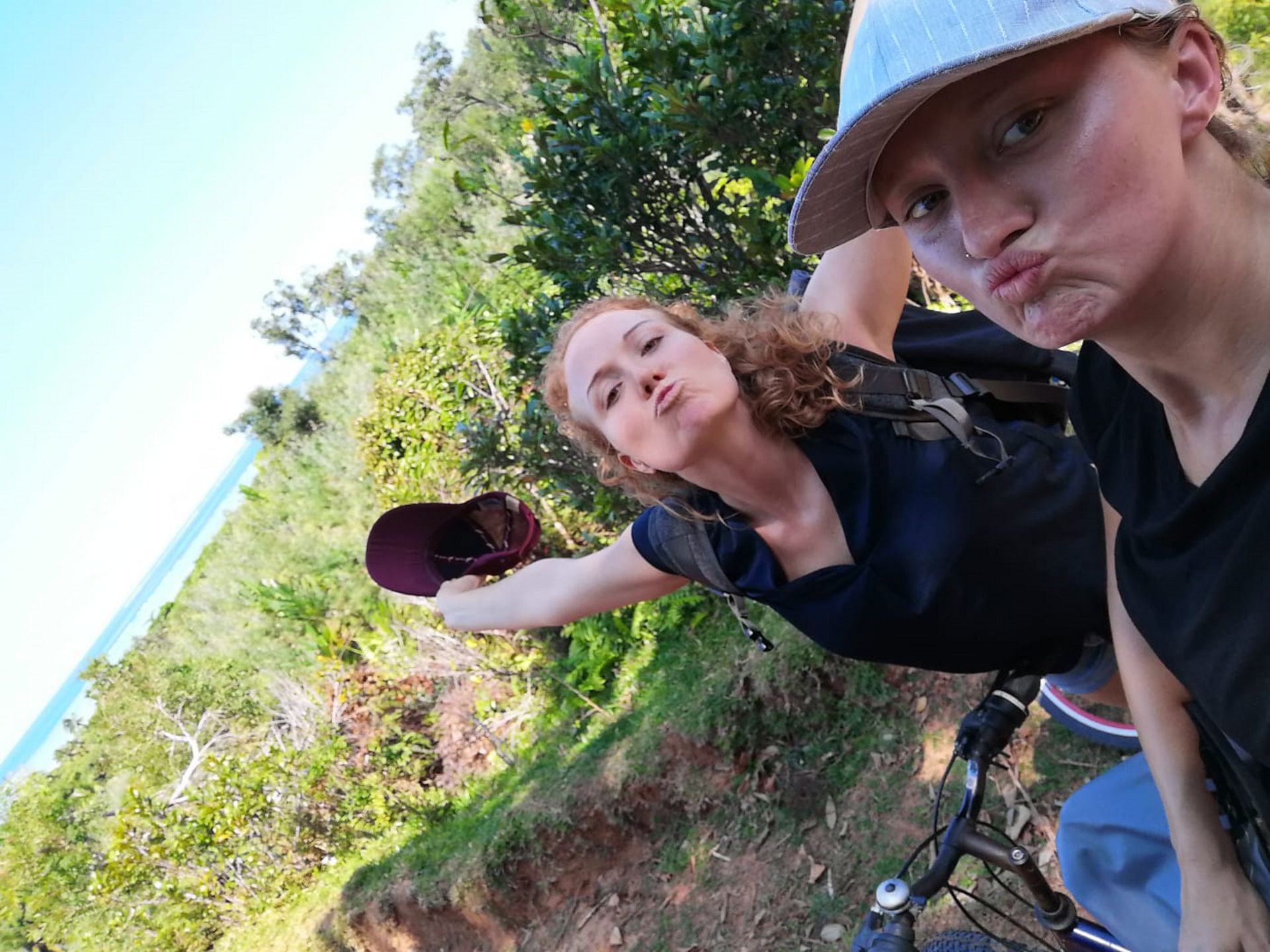
We make our way through a sandy road full of potholes and stones. Passing by small huts, we try to find a nice beach. The first attempt ends up somewhere in the middle of nowhere, at a beach that is pretty but doesn't offer much space. So, we hop back on our bikes and take a different route. After a quite exhausting uphill stretch, we have a unique view.
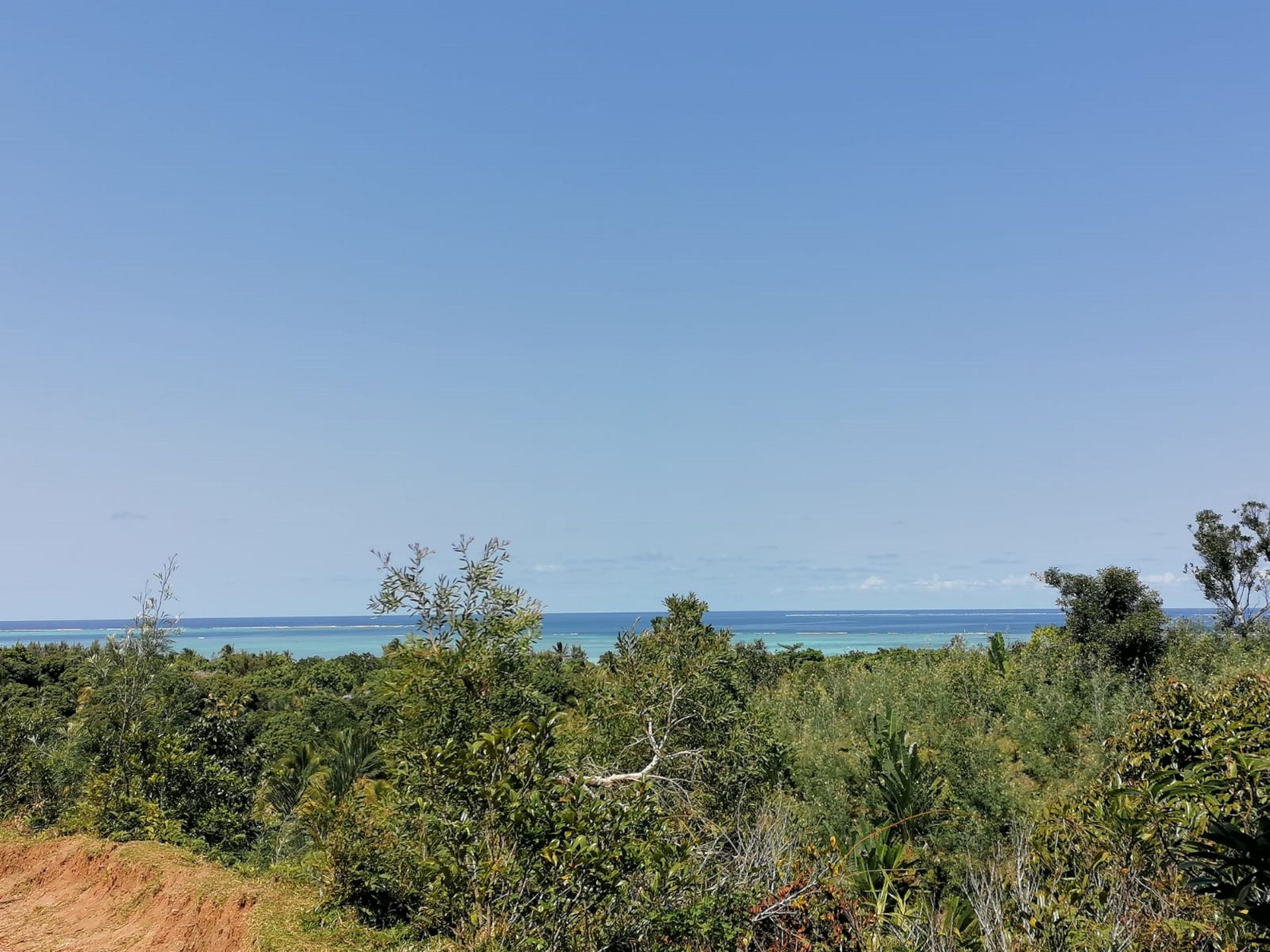
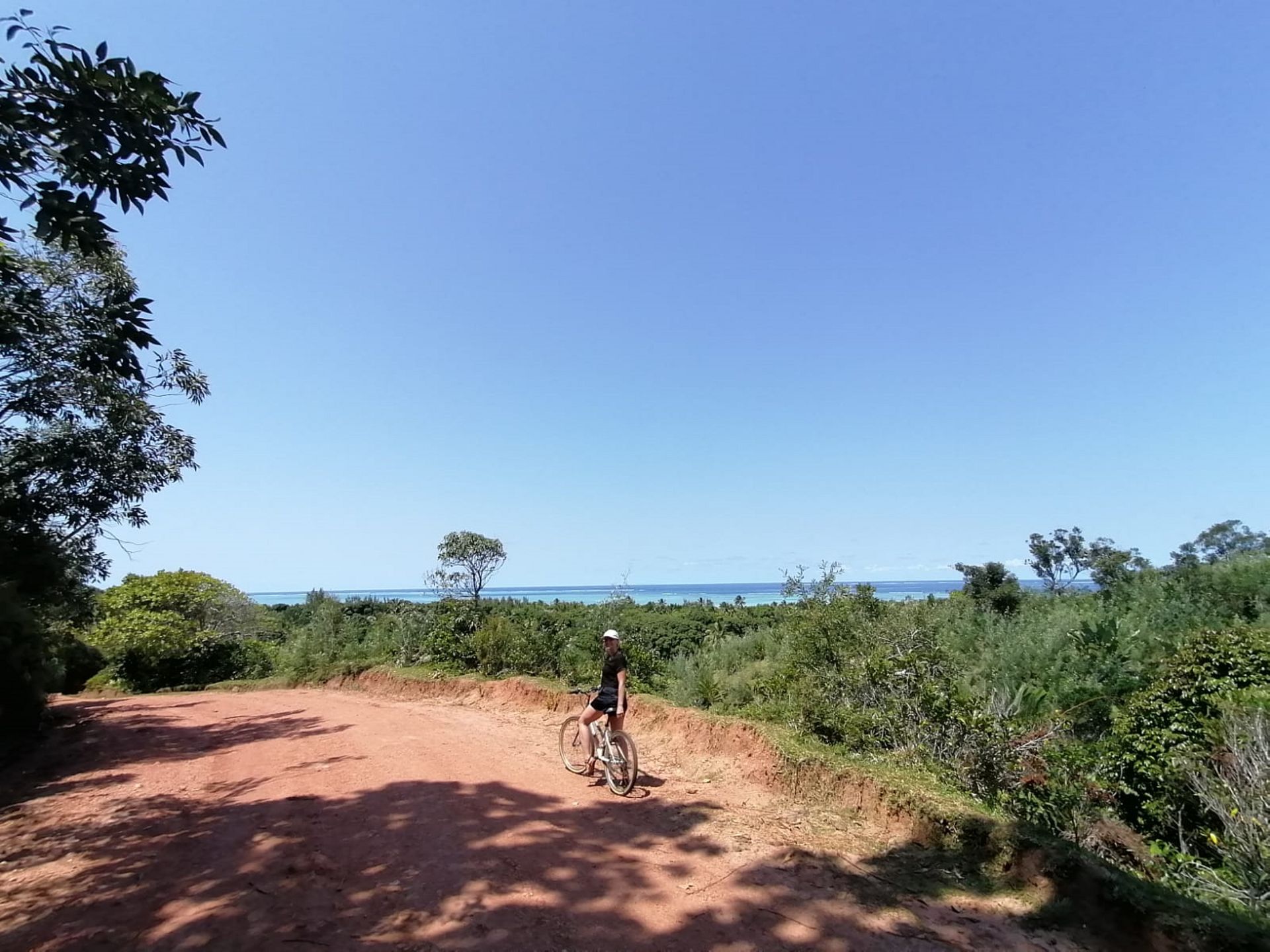
On the other side of the mountain, we actually find a beautiful beach. It's really nice, but the smell is a bit strange. After half an hour, we decide to get back on our bikes and ride back.
Continuing our little tour, we end up, more by chance, at a Dive Center. Since Franzi wanted to inquire, we go inside and here we actually find a beautiful beach without any smells, with a great terrace overlooking the sea. Here, you can truly relax and unwind.
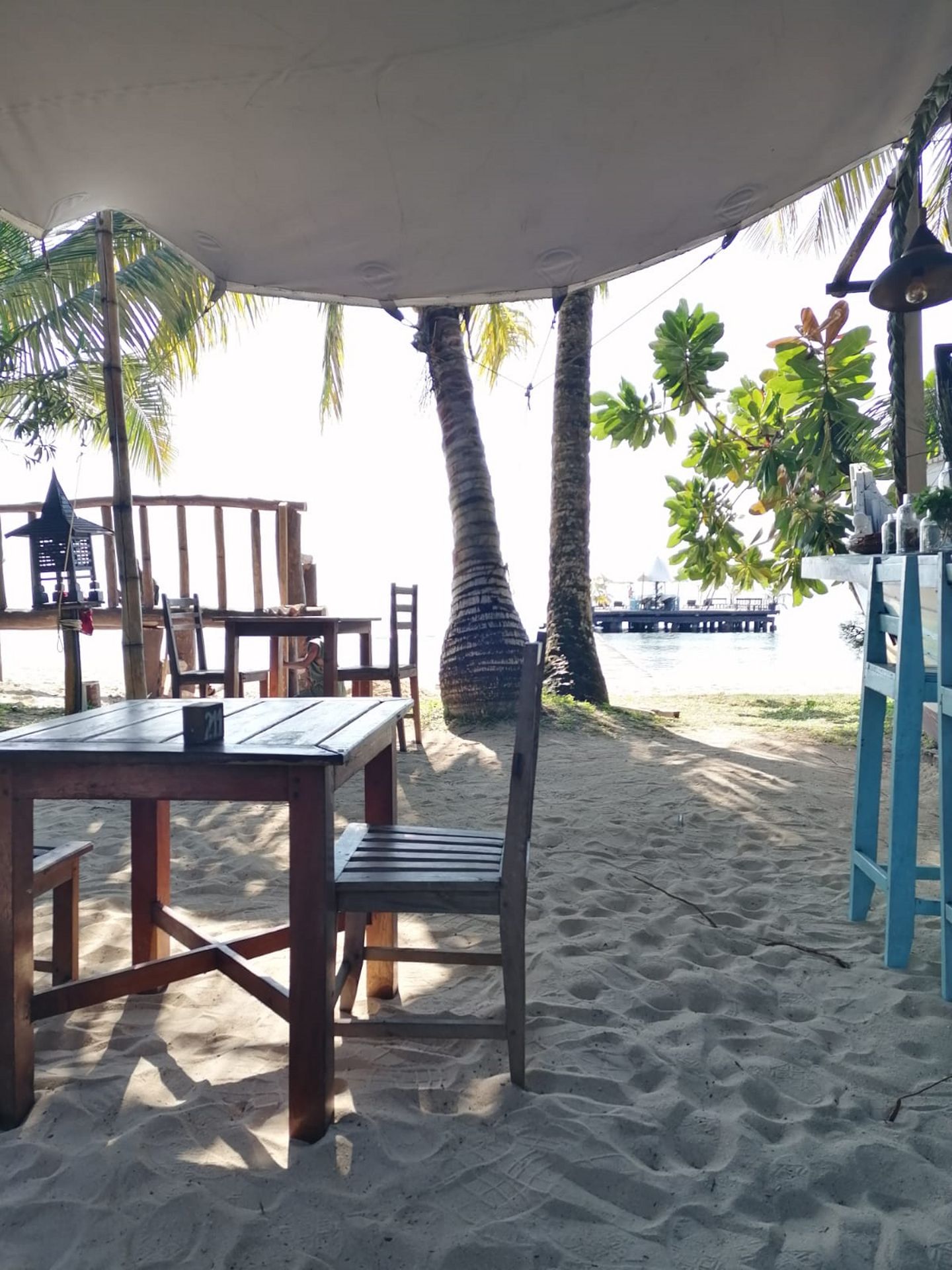
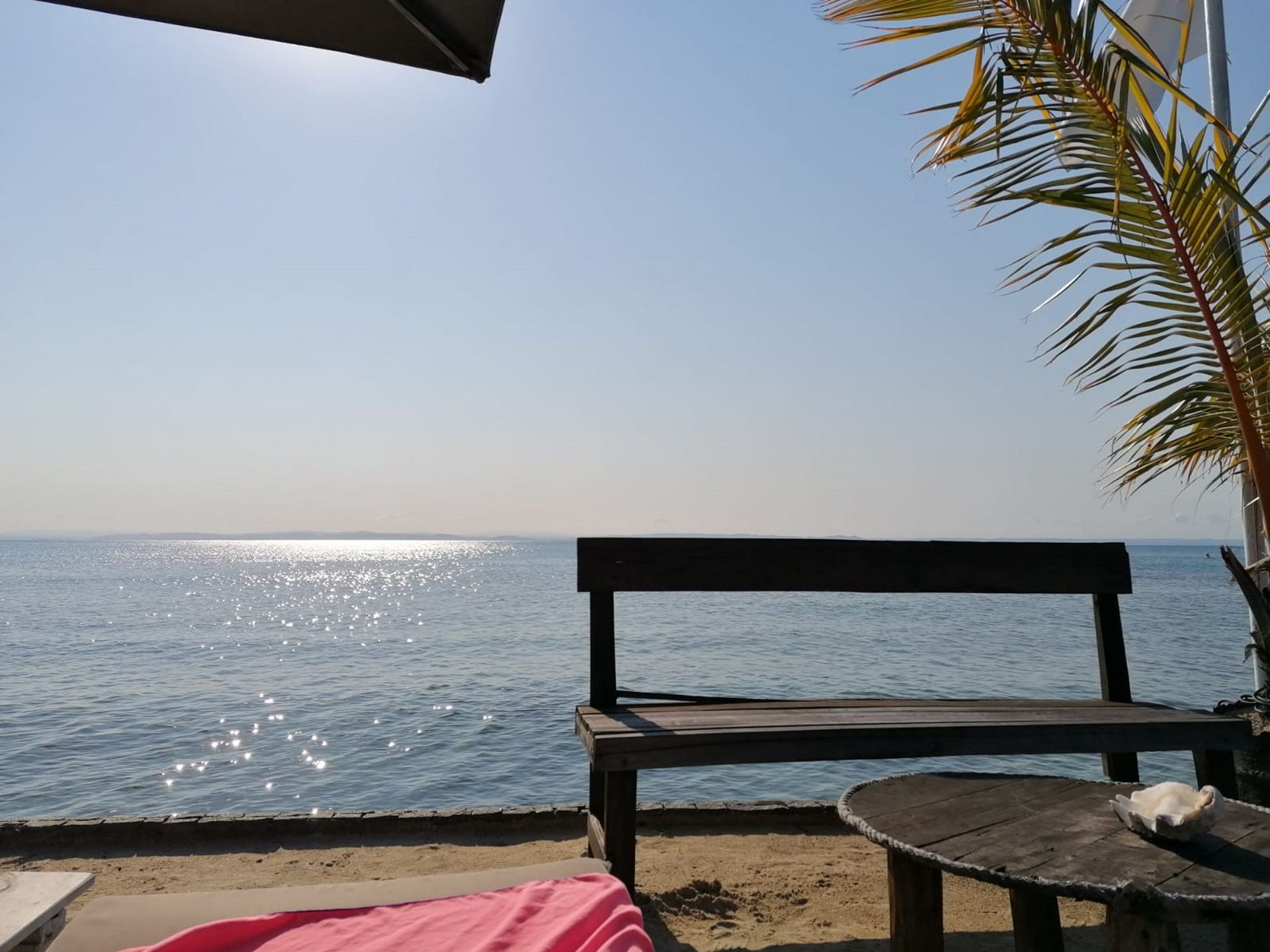
05:00 PM
We slowly ride back to the hotel. Since there are no street lights here and no lights on our bikes, we want to be back at the hotel before it gets dark. Normally, that's around six o'clock here.
Just before our hotel, we meet Eric again. He was extremely happy about the chocolate and invites us for a beer. We learn a few new words in Malagasy. Goodbye = veloma. 1= iray. 2= roa. 3= tell. 4= efatra. 5= dimy.
We find out that he has about 500€ for living expenses. However, schools here cost money. This means that the price to pay for education increases with each level. The first level of schooling is taught in Malagasy, the secondary school is in French, and only in higher education do they learn English. That's why hardly anyone here speaks English. Often, all family members contribute to pay for education so that the children can learn.
There is no such thing as vocational training here, either you go to university, which is very expensive and only possible in Tana, or you start working right away. Eric finds it unbelievable that in many vocational training programs in our countries, you earn money.
After a very interesting conversation and three glasses of beer later, we ride the last 10 meters to our hotel, where the bike rental place is eagerly awaiting us.
We end the evening with good food, relaxed as always.

Dinner
Mbohovái

